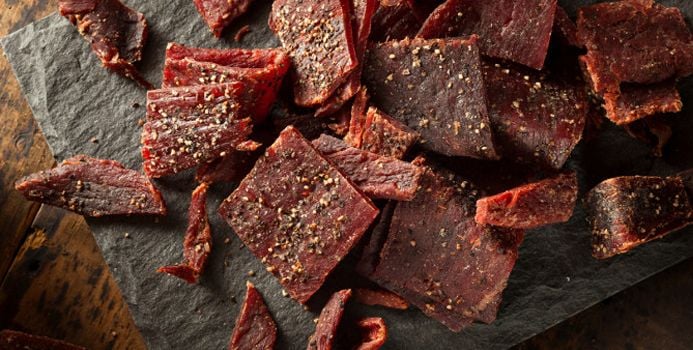The World Health Organization recently released a new study, claiming that processed meats cause cancer and that red meat was probably linked to the disease as well. Paired with little guidance or advice, these results have left many consumers questioning whether or not their diets need an overhaul.
The findings were drafted by a working group of 22 international experts who reviewed more than 800 studies investigating associations of more than a dozen types of cancer with the consumption of processed meat and red meat. Research into a possible link between eating red meat and cancer has been the subject of much scientific debate over the last few decades. However, by concluding that processed meat causes cancer and that red meat “probably” causes cancer, the WHO findings go well beyond the tentative associations that other groups such as the American Cancer Society or the Academy of Nutrition and Dietetics have cautioned.
WHO experts concluded that for each 1.8-ounce portion of processed meat (about 2 slices of ham) eaten daily, the risk of colorectal cancer increased by 18%. Processed meat includes any meats that have been cured, smoked, salted or otherwise changed to enhance flavor or shelf-life. These include items like hot dogs, ham, bacon, sausages, corned beef, and beef jerky. Additionally, consumption of 3.5 ounces of red meat (about 1 small hamburger) was stated to increase the risk of cancer by 17%, though the evidence was limited. Red meat includes beef, veal, pork, lamb, mutton and goat.
Researchers are still trying to pinpoint exactly how red and processed meats cause cells to become cancerous, however, the main culprits seem to be the chemicals found within the meat itself. Chemicals involved in the processing, as well as some naturally present substances such as iron or gut bacteria, have been theorized to play a role in cancer development. High-temperature cooking methods, such as grilling or barbecuing can also create chemicals in the meat that may increase the risk of cancer.
So what does this finding mean in practice? How much meat is sensible to eat?
The results of this review do not mean you need to stop eating meat altogether. The evidence so far has not pointed to a particular amount that is, in terms of cancer risk, likely to be “too much.” However, on the whole, the risk is lower the less that you eat. So, if you are consuming large amounts of red or processed meats on a daily basis and are concerned about your cancer risk, you should consider cutting back. Trying to eat smaller and fewer portions by adding more vegetables, beans or white meats such as chicken, fish or turkey can help to achieve overall moderation and balance. You can also look for uncured, nitrate-free meats at the deli as a slightly safer alternative.
The bold statement from the WHO simply supports the main construct of healthy eating that has been touted for years: moderation. In moderation, meat is still a good source of nutrients such as protein, zinc, iron and B12. Overall, there is still a place for red meats in a healthy lifestyle, as long as it is incorporated moderately, and comes in combination with a well-balanced diet.
Sarah Dreifke is a freelance writer based in DeKalb, IL with a passion for nutrition education and the prevention of chronic disease. She holds a Bachelor of Science in both Dietetics and Life Sciences Communication from the University of Wisconsin-Madison. Currently, she is working towards a combined Master's Degree in Nutrition and Dietetics as well as a dietetic internship at Northern Illinois University.



